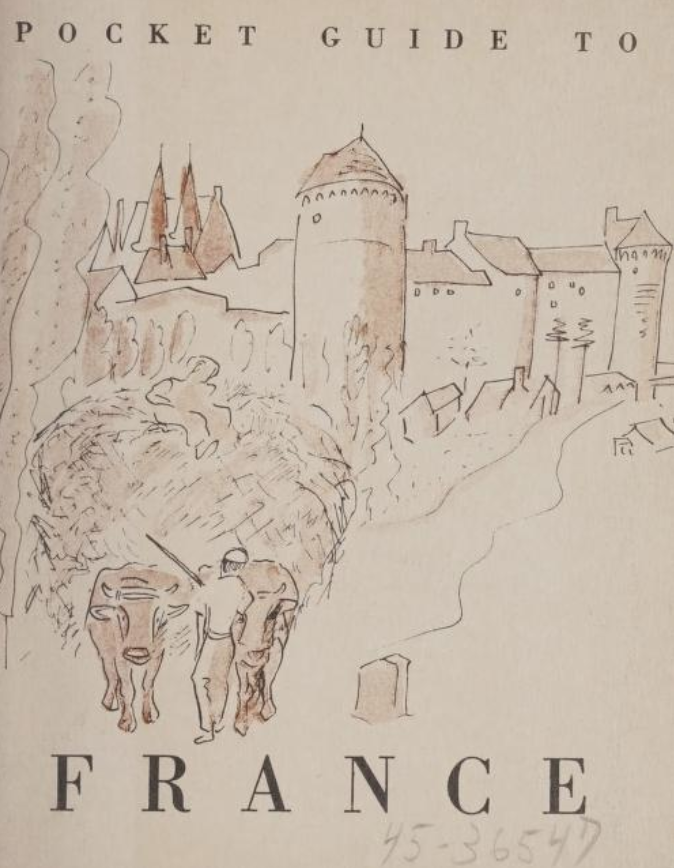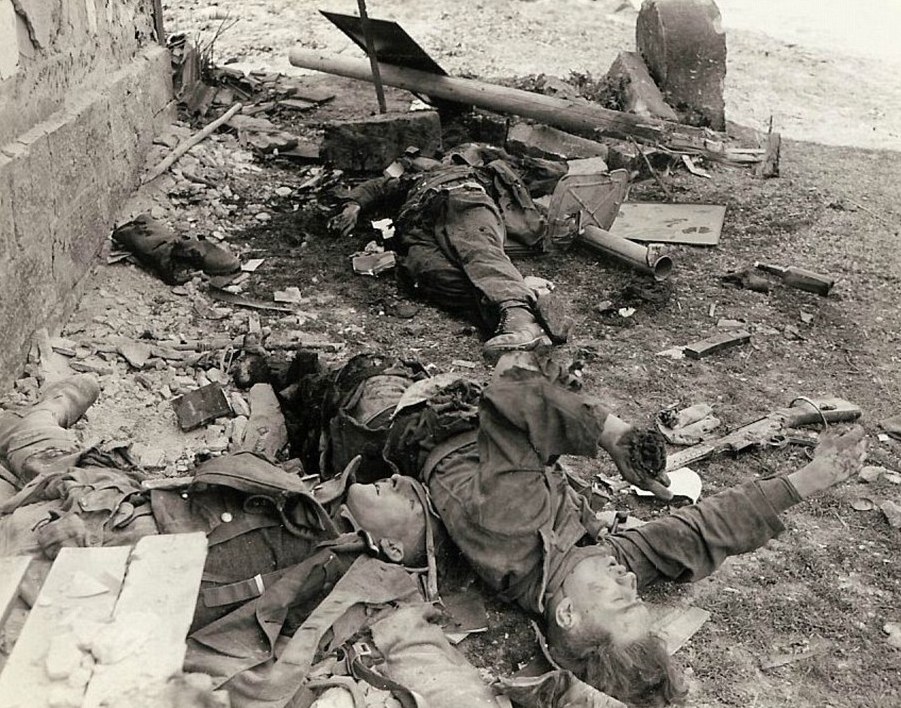As they moved off the beaches after 6-Jun-44, U.S. service personnel read this. Here are some particularly important excerpts.
Pocket Guide to France
Prepared by Army Information Branch, Army Services Forces, Information and Education Division, United States Army
War and Navy Departments, Washington, D.C.
1944
“Why You’re Going to France
“You are about to play a personal part in pushing the Germans out of France. Whatever part you take—rifleman, hospital orderly, mechanic, pilot, clerk, gunner, truck driver—you will be an essential factor in a great effort which will have two results: first, France will be liberated from the Nazi mob and the Allied armies will be that much nearer Virtory, and second, the enemy will be deprived of coal, steel, manpower, machinery, food, bases, seacoast and a long list of other essentials which have enabled him to carry on the war at the expense of the French.
“The Allied offensive you are taking part in is based upon a hard-boiled fact. It’s this. We democracies aren’t just doing favors in fighting for each other when history gets tough. We’re all in the same boat. Take a look around you as you move into France and you’ll see what the Nazis to to a democracy when they can get it down by itself.”
…
“A Few Pages of French History
“Not only French ideas but French guns helped us to become a nation. Don’t forget that liberty loving Lafayette and his friends risked their lives and fortunes to come to the aid of General George Washington at a moment in our opening history when nearly all the world was against us. In the War for Independence which our ragged army was fighting, every man and each bullet counted. Frenchmen gave us their arms and their blood when they counted most. Some 45,000 Frenchmen crossed the Atlantic to help us. They came in cramped little ships of two or three hundred tons requiring two months or more for the crossing. We had no military engineers; French engineers designed and built our fortifications. We had little money; the French lent us over six million dollars and gave us over three million more.
“In the same fighting spirit we acted as France’s alliy in 1917 and 1918 when our A.E.F. went into action. In that war, France, which is about a fourteenth of our size, lost nearly eighteen times more men than we did, fought twice as long and had an eighth of her country devastated.”
…
“In Parting
Pocket Guide to France, US Army
“We are friends of the French and they are friends of ours.
“The Germans are our enemies and we are theirs.
“Some of the secret agents who have been spying on the French will no doubt remain to spy on you. Keep a close mouth. No bragging about anything.
‘No belittling either. Be generous; it won’t hurt.
“Eat what is given you in your own unit. Don’t go foraging among the French. They can’t afford it.
‘Boil all drinking water unless it has been approved by a Medical Officer.
‘You are a member of the best dressed, best fed, best equipped liberating Army now on earth. You are going in among the people of a former Ally of your country. They are still your kind of people who happen to speak democracy in a different language. Americans among Frenchmen, let us remember our likenesses, not our differences. The Nazi slogan for destroying us both was “Divide and Conquer.” Our American answer is “In Union There Is Strength.””
“No bragging or belittling.” “Remember our likenesses, not our differences.” “In Union There is Strength.”
How refreshing.





